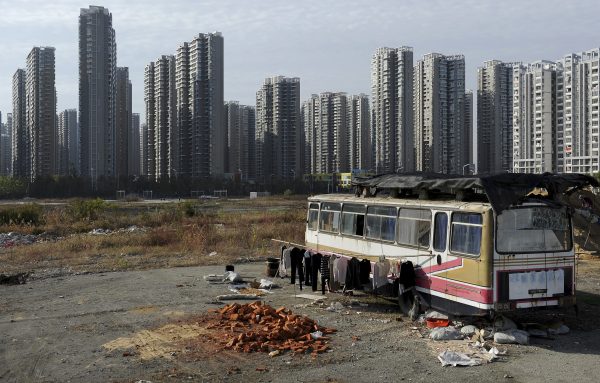But it is clear that neglect of the political and social aspects of development in favour of economic growth is hindering China’s efforts.
The white paper reports that the proportion of China’s population living in extreme poverty has fallen from 61 per cent in 1990 to around 4 per cent in 2015. It goes on to list numerous poverty reduction measures underway including building rural and agricultural infrastructure, helping increase incomes among the indigent, and providing public services such as social security, health care and education. Most of all, the paper stresses ‘development-oriented’ poverty reduction. It rightly acknowledges that poverty is not only an economic problem but also a human rights concern.
Per the UN’s Declaration on the Right to Development adopted in 1986, everyone is ‘entitled to participate in, contribute to and enjoy economic, social, cultural and political development, in which all human rights and fundamental freedoms can be fully realised. China’s representative to the UN has publicly supported this. But in China, the scope of the right to development is not as comprehensive as it could or should be.
The most obvious missing element is political development. Although China signed on to the International Covenant on Civil and Political Rights (ICCPR) in 1998 it has yet to ratify it. This means the country is not bound by the ICCPR, which guarantees essential human rights ranging from freedom of expression, to political participation through regular and free elections, as well as freedom to determine one’s political status and to freely pursue economic, social and cultural development.
This year’s white paper lists specific poverty reduction measures for women, children, the elderly, the disabled and ethnic minorities — all considered to be more vulnerable segments of Chinese society. But the measures provided are all growth-driven and ignore broader aspects of development.
For example, the Chinese government has provided training and education, health care, small loans and allowances to help impoverished women. And these are key areas of progress. But reducing poverty among women is not merely about providing them with more services — it is about recognising their equal rights in society at large.
Economic inequality between men and women has actually grown in the last two decades, with gender-based inequality faced by rural women even worse than that faced by their urban counterparts. The latest white paper on poverty reduction contains no mention of the widening gap in pay and other aspects of gender inequality that contribute to female poverty.
Another example is the limitations of protection for disabled people in China. Although the right for people with disabilities to work is guaranteed by law, it is poorly enforced. In 2007, the Chinese government established a quota system requiring all employers to reserve at least 1.5 per cent of job opportunities for disabled workers. But in 2011, the Beijing-based anti-discrimination group Yirenping conducted a survey of government departments in 30 Chinese cities that found at most only 0.39 per cent of employees of a given department were disabled.
Yet even with this essentially apolitical issue, the white paper does not provide any details on how or whether it will enhance the enforceability of the existing legislation to protect disabled citizens’ right to employment and help them escape poverty.
The ruling Chinese Communist Party often emphasises economic development as its top priority, forbidding activities that may cause social instability on the assumption of an inevitable clash between political and economic development. For the Party, the way to make China a stronger rising power is to pursue economic growth and national wealth first and foremost.
But while the government is certainly moving towards greater recognition of social development’s role in reducing poverty, it also has to make more fundamental changes in its political and civil development. Reducing poverty further requires recognising the individual rights of those in need to all aspects of development, not just the economic, and allowing them to decide what constitutes their own wellbeing.
Development measures purely based on economic growth and basic social services — though vital — will not be enough to pull those most in need out of poverty in China.
Francesca Chiu is a research assistant at the Department of Politics and Public Administration, University of Hong Kong.


‘Development measures purely based on economic growth and basic social services — though vital — will not be enough to pull those most in need out of poverty in China.’
Why not? It pulled the other 750 million?
One might hope that a white paper published in China would be more forthcoming about gender inequality and the rights of the disabled. However, one must realize that it is being published by a government which does not allow freedom of expression in Hong Kong, let alone other parts of the country.
Should one take hope that a research assistant at the University of Hong Kong was even allowed to publish this analysis? Or is it likely that it will be ignored by the central government in Beijing? I suspect the latter.
Many pundits question how accurate the statistics quoted by the PRC about its economic development, the state of its economy are, etc. I doubt the claims that only 4% of the populace now live ‘in extreme poverty.’